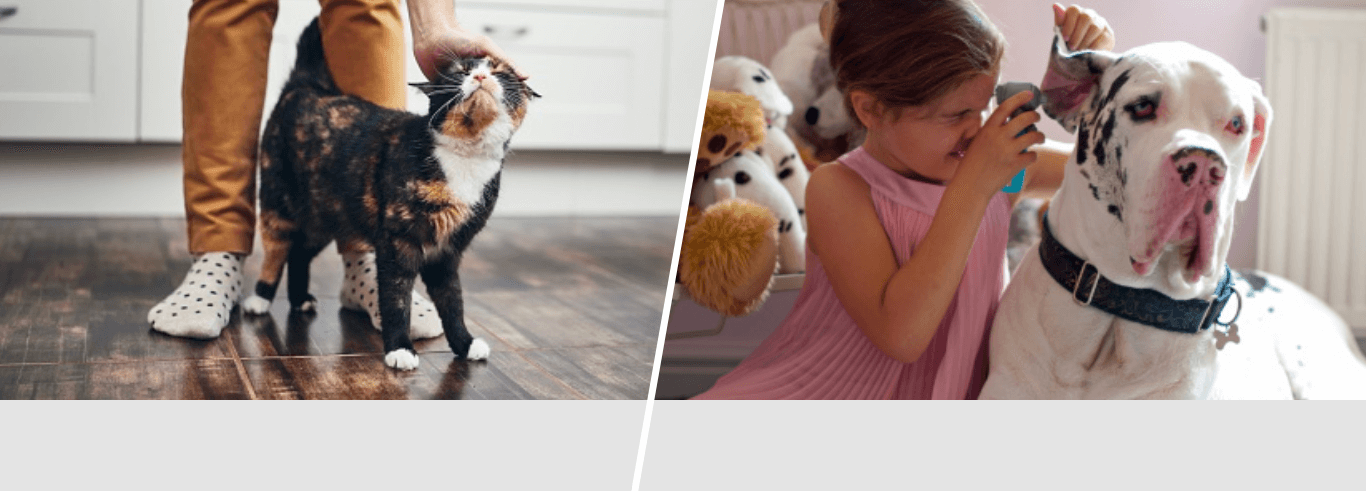Lumps, bumps and skin tags on dogs
It can be worrying if your pet develops lumps and bumps on their skin. They can show up unexpectedly and leave dog owners worried that they could be related to serious health issues. Our guide on lumps, bumps and skin tags on dogs should assist in what to do if you find any.
Is it normal for my dog to develop lumps, bumps and skin tags?
Lumps, bumps and skin tags on dogs are common. Your dog is likely to have many under their fur that will often go unnoticed. While they are sometimes a little unsightly, they are not normally a sign of a possible health issue, however, it’s always good to be aware of them and have them checked just in case.
What is a skin tag on a dog?
Skin tags on dogs are a type of growth on the surface or just under their skin, which can appear in the form of a lump or bump. So, are skin tags on dogs normal? Yes, just like humans, dogs can also develop skin tags as they age. They can range in appearance from small to large skin tags and are commonly harmless, but in order to rule out any serious concerns they should be checked over by the vet.
Where can lumps, bumps and skin tags grow?
These growths commonly appear in the following places:
- Face
- Chest
- Armpits
- Legs
- Stomach
- Eyelids
- Nose
While these growths can be harmless, you should ensure that they are not a sign of something else by checking with the vet. If the lump or bump is a tick it needs to be removed as soon as possible, as they can cause health issues such as Lyme disease. Warts should also be treated, as they are contagious to other pets and can lead to further health issues such as tumours or bacterial infections.
What causes skin tags and lumps on dogs?
While there is no definitive answer to what causes growths or skin tags on dogs, they have been linked to a number of factors:
Parasites: Fleas, lice, mites and ticks can attach themselves to your dog. This can result in inflammation or other skin damage in the process.
Ill-fitting collar: A common cause of growths or skin tags on dogs is a badly fitting collar. Make sure it does not rub against the skin. This can cause irritation to the skin and it can also cause discomfort to your pet.
Improper skin care: Make sure your pooch is bathed or taken to a dog groomer on a regular basis to keep their skin clean. However, do not wash your dog too often as it can dry out their skin, causing friction and skin damage.
Nutrition: Making sure your pet gets all of the nutrition they need is vital to their basic health. One result of poor nutrition could be a weakened immune system. This can leave your dog more vulnerable to skin conditions.
Irritants: Exposure to irritants such as certain shampoos, detergents and other chemicals can be harmful to your pet’s skin and lead to growths. Try to avoid exposure to unnecessary chemicals to keep your dog safe.
Does my dog need to go to the vet?
Lumps, bumps and skin tags may warrant a trip to the vets if you notice any of the following:
-
- Your dog is continuously trying to bite or scratch at the lump, bump or skin tag
- The lump, bump or skin tag has been cut and/or is bleeding. This can be become infected if not dealt with properly
- The lump, bump or skin tag has grown or changed shape or colour dramatically
- If your dog has a lump or skin tag that is large and is easily caught on their collar, brush or other objects
How to remove skin tags on dogs
You should never attempt to remove a growth from your dog using home remedies, as this can result in hurting your pet.
If you believe your dog does need to have a growth removed, you should always seek advice from your vet. There are a number of safe and simple options for treatment they can offer, including:
Cryosurgery: A safe method of using extreme cold to destroy the growth.
Surgery: You vet will surgically remove the growth
Cauterisation: It will be burned from your dog’s body
You should always get a second opinion if you think you’ve spotted a growth on your dog. Remember to keep yourself protected from vet bills with Argos Pet Insurance provided by Pinnacle Insurance Ltd. Explore our dog insurance policies today.
 Sorry, our lines are now closed
Sorry, our lines are now closed



